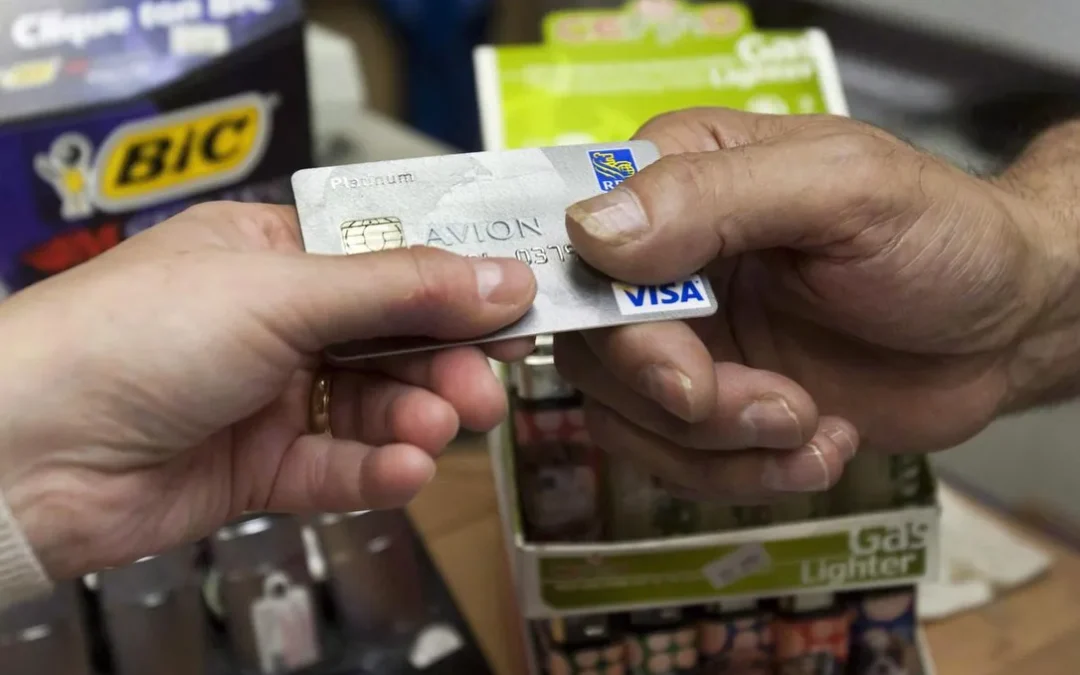Josh Rubin is a Toronto-based business reporter Twitter:@starbeer
Giancarlo Trimarchi is used to his bigger competitors paying less for fruits and vegetables.
The owner of Vince’s Market, however, is frustrated that they’re also paying a lower rate for credit card transaction fees.
“If I’m buying apples, and I’ve only got to get two cases from you and the big guy’s going to order two trailer loads, I get it. He’s going to get a better price,” said Trimarchi, whose four-store family-run mini chain began as an open-air produce stand in Sharon, Ont.
That principle shouldn’t, says Trimarchi, apply to interchange fees — the cut of every credit card transaction which goes to the bank who issued the card.
And that’s something that small business associations are hoping Deputy Prime Minister and Finance Minister Chrystia Freeland will put a stop to in her federal budget Tuesday.
“It’s a digital service with absolutely no economies of scale whatsoever,” said Trimarchi, who estimates that small grocery stores like his pay rates more than 50 per cent higher than large chains.
“Most independents are averaging anywhere between 1.2 and 1.4 per cent. Through what we’ve seen on some leaks, the big chains are paying somewhere around 0.85 per cent,” Trimarchi said. “It’s just another cost that goes on Main Street businesses as opposed to big Bay Street guys. It’s another thing that they negotiate that we can’t, because we don’t have the size.”
Gary Sands, vice president of the Canadian Federation of Independent Grocers, says the discrepancy puts even more pressure on small grocery stores when it comes to competing with the likes of Loblaws, Sobeys and Metro.
“It’s not just frustrating,” said Sands. “It’s putting them at a competitive disadvantage.”
Banks and credit card companies have argued that the fees are needed to run their networks, and help pay for the rewards on premium cards. (Merchants are typically charged a higher rate for transactions using the premium cards).
In 2014, Visa and Mastercard agreed voluntarily to reduce their interchange fees to an average of 1.4 per cent by 2020, down from an average of 1.5 per cent. In its fall economic statement this past November, the federal government vowed to cut credit card fees for small businesses further, and — in an implicit threat — produced draft legislation which would regulate the fees.
In February, the Canadian Federation of Independent Business launched a petition calling on the federal government to cap interchange fees at 0.7 per cent.
In an interview this week, CFIB president Dan Kelly said that rate would put all businesses on a level playing field — something he argued smaller companies need desperately in the wake of the global COVID-19 pandemic.
“Small businesses have been put through the wringer,” said Kelly, pointing out that in several provinces, small independent retailers were locked down repeatedly during the pandemic, while big box stores such as Walmart and Costco stayed open.
The CFIB also asked the government during prebudget consultations to extend the repayment deadline of Canada Emergency Business Account COVID loans to the end of 2024, and to create an appeals process for businesses who were deemed ineligible for CEBA.
A spokesperson for Visa Canada wouldn’t reveal details of any conversations the company has had with the federal government, and insisted Visa supports small businesses.
Visa Canada is committed to small business success and continues to offer high-value services to merchants through payments by enabling them to securely access a broader customer base, protect consumer benefits and help small businesses grow,” said Crystal Hyde.
Freeland spokesperson Adrienne Vaupshas wouldn’t reveal any details of what might be contained in the budget, but said the government wants to bring fees down.
“The federal government is very committed to lowering the cost of credit card fees in a way that benefits small businesses and protects existing reward points for consumers,” said Vaupshas.
For independent grocery stores, even a smaller reduction in the rate they pay could make a big difference, said Sands. Most of them have a razor-thin profit margin of around two per cent, he estimated, well below what bigger companies typically make.
“With roughly half the margin of a retail grocery chain, and paying significantly more in interchange fees, something clearly needs to be done,” said Sands, adding he’s “very hopeful” there will be some movement in the budget.
https://www.thestar.com/business/2023/03/28/small-business-hopes-chrystia-freelands-federal-budget-levels-the-playing-field-on-credit-card-fees.html

